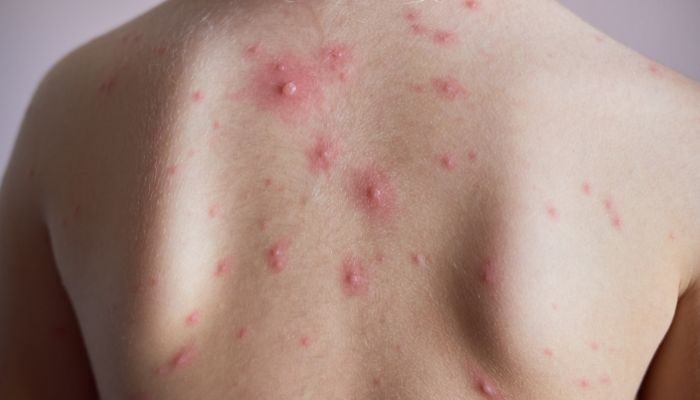Worry about your concern!!
Online consultation · Starts at just ₹199
Consult with top specialist doctors in their fields


Understanding and Managing Chickenpox: Symptoms, Prevention, and Home Remedies
Varicella, another name for chickenpox, is a highly infectious virus that primarily affects youngsters. Although it is often minor in children, adults and those with compromised immune systems may experience serious problems. You can deal with chickenpox more skillfully if you understand what it is, how it spreads, what its symptoms are, and how to treat it.
What is Chickenpox?
Chickenpox is caused by the varicella-zoster virus (VZV). It spreads easily from person to person through respiratory droplets, such as when an infected person coughs or sneezes, and through direct contact with the fluid from chickenpox blisters. After infection, the virus may lie latent in the body for a while before reactivating to cause shingles.
Symptoms of Chickenpox
It typically takes 10 to 21 days following viral exposure for chickenpox symptoms to manifest. A red, itchy rash that develops into blisters packed with fluid and finally scabs over is the most identifiable sign. Other signs and symptoms might be:
- Fever
- Fatigue
- Loss of appetite
- Headache
- Sore throat
The rash typically starts on the face, chest, and back before spreading to the rest of the body. New spots can appear for several days, and it's not uncommon for all stages of the rash (red spots, blisters, and scabs) to be present at the same time.
How Chickenpox Spreads
From one to two days before the rash first emerges until all of the blisters have closed over, chickenpox is extremely infectious. About five to seven days may pass during this time. It may proliferate by:
- Direct contact with an infected person's rash
- Respiratory droplets from coughing or sneezing
- Touching contaminated surfaces and then touching your face
Prevention
Vaccination is the most effective method of preventing chickenpox. Most recipients of the safe and effective varicella vaccination develop immunity. It is usually administered in two doses:
- The first dose at 12-15 months of age
- The second dose at 4-6 years of age
The vaccine should also be administered to adults and older children who have never had chickenpox or had a vaccination. For individuals who are more susceptible to serious sickness, such as expectant mothers, those with compromised immune systems, and healthcare professionals, it is especially crucial.
Home Remedies and Management
For most healthy children, chickenpox can be managed at home with supportive care to relieve symptoms and prevent complications. Here are some tips to help manage chickenpox:
- Keep the Skin Cool and Itch-Free
- Oatmeal Baths: Add colloidal oatmeal to lukewarm bathwater to soothe itching.
- Calamine Lotion: Apply to the rash to help reduce itching.
- Cool Compresses: Use a cool, damp washcloth on itchy areas to provide relief.
- Stay Hydrated
- Encourage the patient to drink plenty of fluids, such as water, herbal teas, and clear broths, to stay hydrated and support the immune system.
- Avoid Scratching
- In order to avoid infection and scarring from scratching, keep the patient's nails short.
- To stop young toddlers from scratching, think about covering their hands with mittens or socks.
- Relieve Fever and Discomfort
- Use acetaminophen (Tylenol) to reduce fever and relieve pain. Avoid aspirin, as it can lead to a rare but serious condition called Reye's syndrome.
- Rest and Isolation
- Encourage the patient to rest and avoid strenuous activities until they feel better.
- Keep the patient isolated from others, especially those who are not immune, to prevent the spread of the virus.
Complications and When to Seek Medical Attention
While chickenpox is usually mild, it can cause serious complications in some cases. Seek medical attention if the patient experiences:
- Breathing problems or shortness of breath
- Chronically elevated fever
- Disorientation, a stiff neck, or a severe headache
- Blisters surrounded by red, puffy, and painful skin are symptoms of a secondary bacterial infection.
- Sunken eyes, dry tongue, or lack of urine are signs of dehydration.
People at higher risk for complications include newborns, pregnant women, adults, and individuals with weakened immune systems. In these cases, antiviral medications may be prescribed to reduce the severity of the illness.
Coping with Chickenpox
Dealing with chickenpox can be challenging, especially for young children who may not fully understand the importance of avoiding scratching and staying isolated. Here are some tips to help cope with the illness:
- Distractions: Keep the patient occupied with quiet activities such as reading, drawing, or watching movies to help take their mind off the itching.
- Comfort: Ensure the patient is comfortable with soft clothing and bedding. Avoid materials that can irritate the skin.
- Support: Offer plenty of comfort and reassurance to the patient, especially if they are feeling unwell or irritable.
Preventing the Spread
- Wash your hands often with soap and water to stop the spread of chickenpox in the home.
- Don't share personal things like beds, towels, or cutlery.
- Frequently touched surfaces should be cleaned and disinfected on a regular basis.
Summary
A highly infectious virus, chickenpox primarily affects children. Understanding how it spreads, recognizing the symptoms, and managing it will help you deal with this frequent sickness. Prevention by immunization is crucial, and at-home symptom management includes reducing fever, keeping the skin cool, drinking enough of water, and refraining from scratching. Even though the majority of cases are minor, it's crucial to get medical help if problems develop. You can promote a quicker recovery and stop the spread of chickenpox by adhering to these recommendations.


